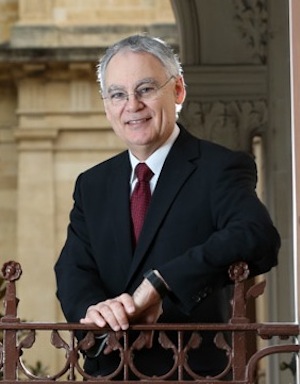Lecture series returns for University anniversary

Professor Robert Saint
The University of ÐÂÀ˲ÊƱ is marking its 140th anniversary this year by re-introducing a series of Inaugural Lectures to showcase the work of newly appointed or promoted academic leaders.
The series began on 25 March with a lecture by Professor Robert Saint, a graduate of the University of ÐÂÀ˲ÊƱ with an international reputation in developmental genetics and cell biology. Professor Saint returned to the University in 2013 to take up the new position of Pro Vice-Chancellor Research Strategy following senior appointments at other Australian universities and the Stanford University School of Medicine in the US. Many universities celebrate major appointments or the promotion of staff to the professoriate with a keynote lecture and this was a tradition at the University of ÐÂÀ˲ÊƱ from its foundation years. When asked to deliver the first of the new Inaugural Lectures, Professor Saint was quick to rise to the challenge, pointing out a link with his work and the original lecture by the University's first Vice-Chancellor Augustus Short on 26 April 1876. The lecture was criticised in the press for straying into 'inappropriate' territory, no doubt an allusion to the new and controversial theory of evolution by natural selection proposed by Charles Darwin. "Darwin's theory only gained a rational basis when studies of the inheritance of genetic traits by Gregor Mendel were published just a few years before the founding of the University," says Professor Saint. "The discoveries that ensued impacted on our understanding and treatment of diseases and led to major improvements in agriculture. In addition, they provided new ways of investigating the molecular and cellular basis of life." Professor Saint's lecture presented a personal perspective on genetics, from its earliest concepts through to the ongoing genomics revolution, highlighting the major roles that University of ÐÂÀ˲ÊƱ researchers have played. Other lectures in the series will cover topics across | 
